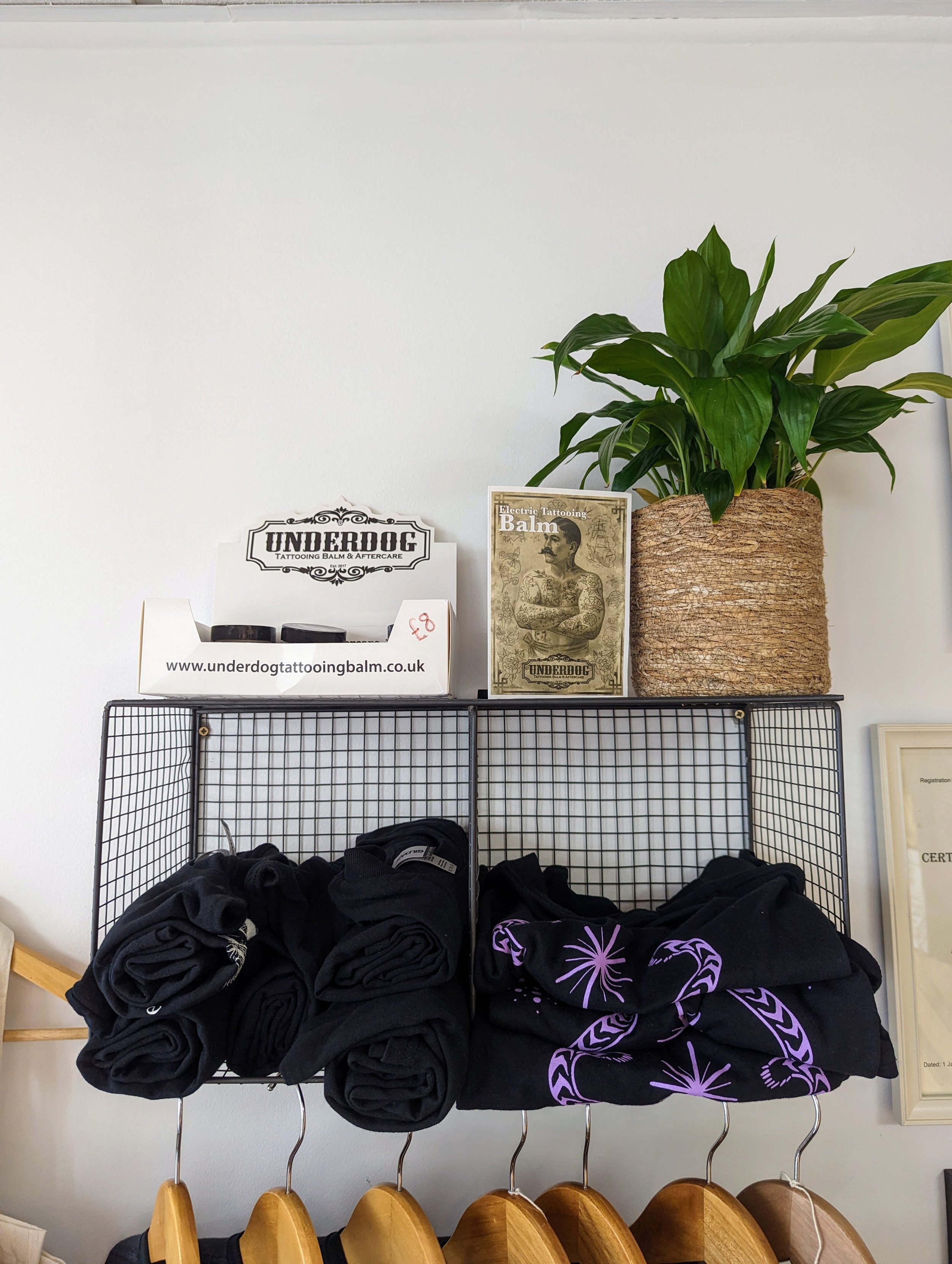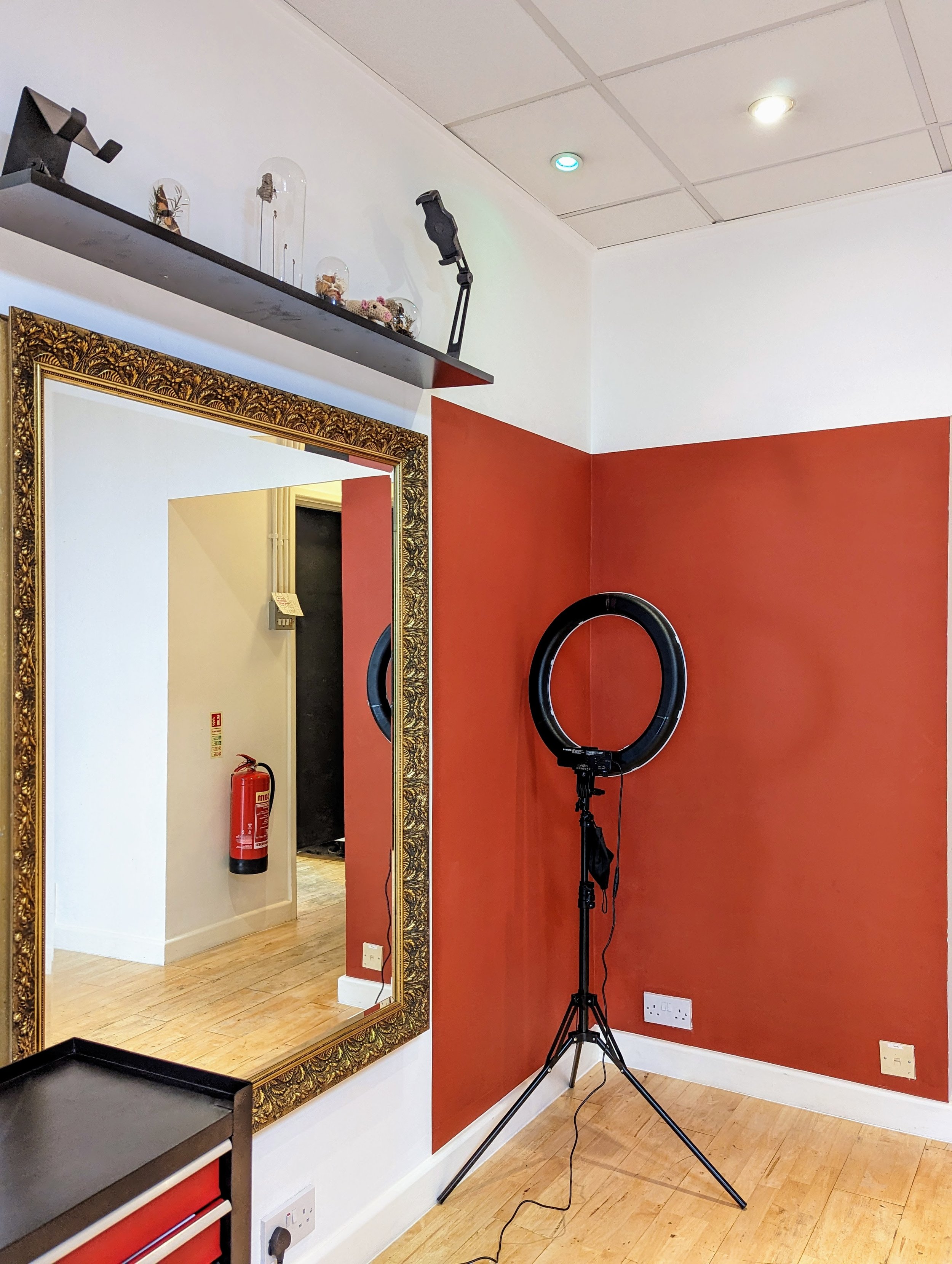Preparing for your tattoo appointment
Preparing for your tattoo appointment
There is nothing especially dramatic that you need to do ahead of your appointment. We encourage you to try to get a good nights sleep, and to eat well on the day of your appointment.
Please also consider where you are getting tattooed, and wear appropriate, comfortable clothing which allows easy access to the area.
We recommend bringing some snacks, sweet and savoury, and water and/or a sugary drink with you for during your session to help keep your energy up.
Tattoo aftercare advice
Tattoo aftercare advice
After your session: Your new tattoo will either be wrapped in cling film or second skin. These act as a barrier to keep bacteria and dirt out of your tattoo while the skin is freshly open.
If your tattoo is wrapped in cling film, please keep this on for about two hours. If you feel as though the tattoo is sweating underneath, it is encouraged to remove the cling film sooner, as this can encourage excess ink to be rejected.
There is no need to replace the cling film after the initial piece as, again, this can cause sweating. Please do not cover the tattoo with a bandage or plaster, as fibres can stick to the tattoo and interfere with healing.
Washing your tattoo: When you remove the cling film, washing the tattoo will remove the petroleum jelly or tattoo balm allowing the tattoo to breathe.
Please wash your hands before you touch the tattoo. There is no need to use soaps or antiseptics. You only need to rinse the tattoo with warm water. Allow the tattoo to air dry for a minute or two; do not use hand towels/paper towels/etc as these will not be sterile and also may deposit fibres in the tattoo.
Applying aftercare cream: As the tattoo heals, it will dry out slightly; aftercare creams create an appropriately breathable barrier to resist bacteria and debris, and also hydrate the skin to avoid excess scabbing.
Only a thin layer of moisturiser is necessary, especially the more oily the moisturiser, such as coconut oil.
Do not use anything containing antiseptics (Savlon, Bepanthen) as these will draw out the pigment and damage the tattoo.
Avoid moisturisers with fragrances.
As a general guide, wash and moisturise your tattoo morning and evening for the next two weeks. This advice may vary depending on the size, complexity, and placement of the tattoo, if this applies it will be advised at the end of your session. You may find your tattoo is more dry for the first couple of days, and you can wash and moisturise it an additional 1 or two times if you feel it is necessary.
What to expect: It is perfectly normal for tattoos to be slightly red and/or raised, to scab, flake, and itch a bit. This will vary depending on the placement and density of pigments. If you are unsure whether your tattoo’s reaction is normal, you are more than welcome to contact your artist or pop in to the studio.
Avoid picking scabs, they will fall off naturally when they are ready.
Infections are uncommon, but excessive itching, redness, and oozing, particularly if there is a foul smell, can be indicators. If you are concerned about infection, contact your artist and they can advise whether to contact a doctor.
Other considerations:
It is advised to shower (as opposed to bathing) if possible. Water running over the tattoo is fine, but avoid submerging/soaking the tattoo while it is healing. Please do not scrub your tattoo while it is healing, and ensure the tattoo is rinsed thoroughly of any soap run off.
Avoid pools, sea water, and try to keep your healing tattoo out of prolonged direct sunlight. When your tattoo is fully healed, the more it is exposed to sunlight, the faster it will naturally fade and spread.
Generally try to keep your tattoo clean, and away from animals.
If you are unsure of anything during your healing process, please contact your artist.
Tattoos are not a fixed object, as is the nature of art on a body. All tattoos will change over time, they will fade, move with your skin, and start to spread; this is down to a number of factors, some of which are genetic, but taking good care of your tattoo, especially in its early healing stage, will give its best chances of looking fresh for as long as possible.

